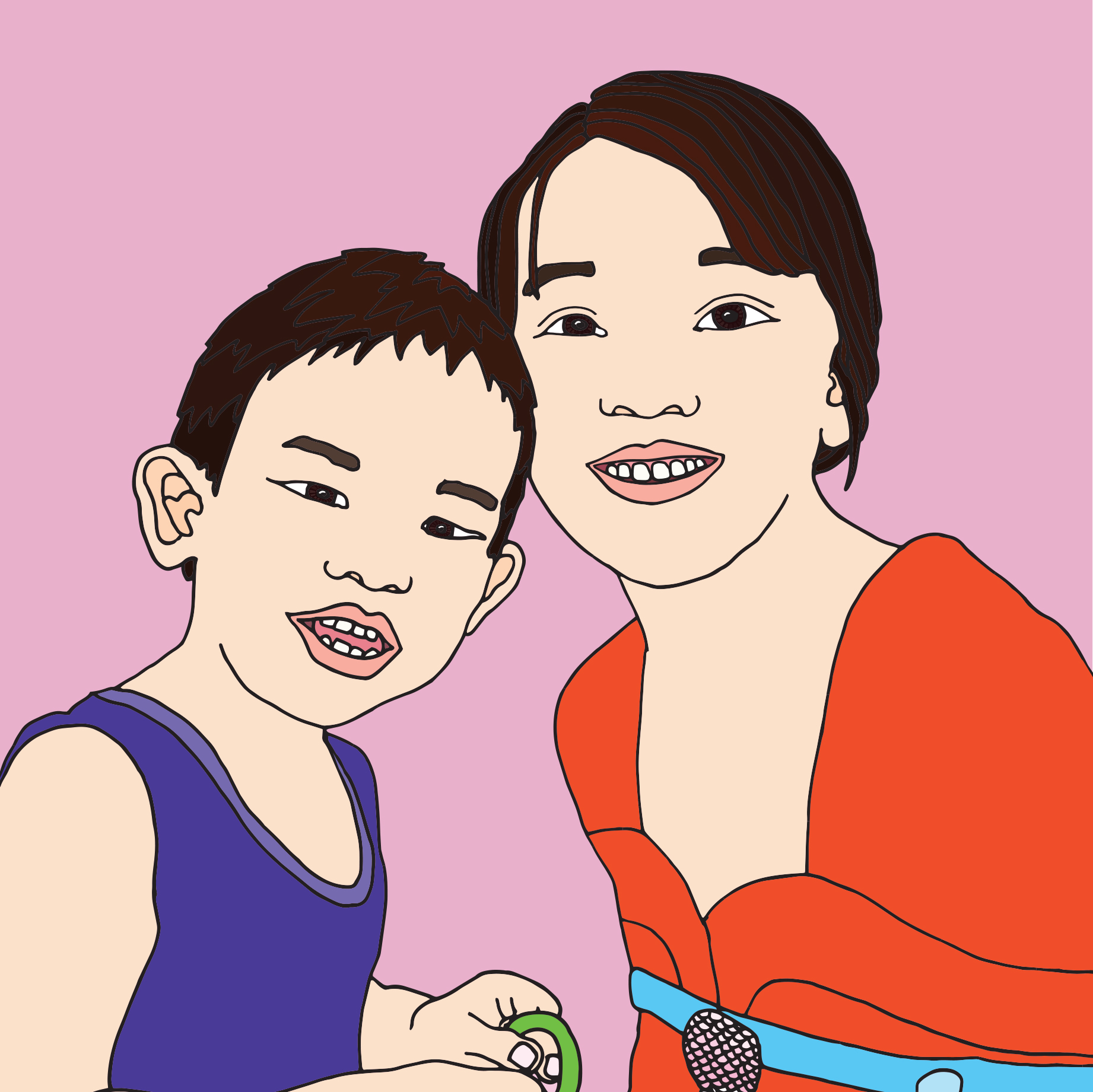One Mum’s Story of Having Perinatal OCD

According to Perinatal Anxiety & Depression Aotearoa (PADA), 1500 New Zealanders experience perinatal OCD every year and it can occur for both mothers and fathers, birthing and non-birthing parents. Each parent’s experience of perinatal OCD is different and here, one incredible Kiwi māmā shares her personal account, from onset to her diagnosis and treatment, and where she’s at today.
Kia ora Tracey. Can you start by introducing yourself?
Kia ora, my name is Tracey and I live in the Hutt Valley. I’m married, have two young children, and work part-time.
We hear a lot about perinatal depression and anxiety, but not as much about perinatal OCD. What was your understanding or experience, if any, of OCD prior to pregnancy or postpartum?
I had no real understanding of what OCD, perinatal or otherwise, was prior to my own diagnosis. Like a lot of people, what I knew of OCD came from its (generally poor) portrayal in popular culture.
Perinatal OCD is characterised by a mother or father experiencing intrusive thoughts, often with an overwhelming fear or worry of their baby being harmed. Can you give us an insight into how and when these thoughts first presented for you? What was the nature of them?
The intrusive thoughts first appeared when I was pregnant with my son. I had previously had two miscarriages before becoming pregnant again. I was very, very anxious. I followed all the guidelines given to pregnant women zealously. I lived in terror of losing that pregnancy. I would spiral very badly over thoughts that I may have unintentionally done something to cause harm. It really took grip though once I could start feeling my son move. Instead of it being reassuring to feel him move, it was a constant reminder that if I didn’t feel him, then something was drastically wrong.
What were some of the compulsions you experienced as a result of the intrusive thoughts?
When you are pregnant you are asked to ‘kick count‘, counting kicks become my obsession. I then worried that I wouldn’t accurately do it, or remember, so I began to record his movements in a notebook. I went through about four notebooks in my pregnancy, filling each one up. I was so afraid of not recognizing when he last moved that I recorded each movement, all day, every day. If I was in a meeting at work, I wasn’t listening, I was counting the kicks in my head to add to my notebook as soon as I was done. The same goes for hanging out with friends etc. The notebook and the recording was supposed to provide me with reassurance, so I could check when he last moved and feel better, however, it didn’t work that way. I would constantly convince myself that I had got it wrong. I ended up in hospital for monitoring a few times because I was convinced he wasn’t moving. I would have panic attacks, ring my husband constantly to seek reassurance, but it was never enough and only gave temporary relief.
I kept my notebooks hidden from my midwife because I knew what I was doing was a little odd, and I was worried she would growl me. I could tell she was exasperated with my anxiety and there were a lot of articles in the media about how underfunded and overworked midwives were (and still are) so I was very wary of being an extra burden and creating more work. I didn’t feel supported at all. I felt very alone. Being pregnant felt like this huge responsibility that fell completely on me. If anything happened to the baby, it would be my fault.
How did you go about reaching out for help? What was the diagnosis process like for you and what was the treatment plan from there?
I didn’t receive any help for my perinatal OCD until my son was 8 months old. After he was born, which was traumatic in and of itself (I had an emergency C-section). It was clear I was still very anxious. My midwife handed me a brochure on postnatal depression and that was as far as it went in terms of follow-up care. I had hoped that once my son was born safely, the fears I had would dissipate. But of course, that’s not how it works. I was still convinced that I would unintentionally hurt him.
As he grew and became mobile, my fears increased. With every minor bump (which is common when babies are crawling/cruising and learning to walk), I was sure it was going to be a life-threatening concussion. Everything I read online said to take your baby to the doctor if you were at all worried – and to trust your ‘mother’s instinct’ – so the emergency department and GP became my place of reassurance seeking. Unfortunately, this lead to ACC lodging a ‘report of concern’ with Child Youth and Family (CYFS), now Oranga Tamariki, although they found nothing wrong in terms of my son’s care and wellbeing and closed the case after only a week or so. It caused a lot of upset and stress for my whole family. CYFS did find that everyone they spoke to mentioned how anxious I was, however, I was not offered any help for my mental health. Realizing what a huge burden my anxiety and panic attacks were putting on the family I went to my GP and was referred to Maternal Mental Health, where I ended up receiving some treatment with a psychologist.
In terms of treatment, a specific fear of mine at the time of seeing Maternal Mental Health was feeding my son and having him choke. I couldn’t attend a first aid course, as I also found that speaking about my fears was another fear. I worried that verbalizing it would manifest it into being (issues around magical thinking can be quite common with OCD). You can’t rationalize with OCD. With the help of my psychologist, we did Exposure Response Prevention therapy (ERP). In terms of the fear of choking, I had to start by feeding my son slightly bigger bits of food over a period of time, we also had a list of what I deemed ‘safe’ and ‘non-safe food’ so we would work on adding some of ‘non-safe’ foods into the exercises. We also added variations to the ERP – sometimes I would do it on my own, or with my husband present, working up until I could feed my son solids without having a panic attack or avoiding it altogether and making others feed him, and when alone with my son only sticking to my list of ‘safe foods’. Today. my son is 5 and I can happily feed him anything. Although the fear is still present, I am able to not give in to my compulsion to chop his food into tiny bits. With my current private therapist, we also practice Acceptance Commitment Therapy (ACT). This means I recognize the negative thoughts and name them, but try to assign no value to the thoughts. For example, if I am getting my son some grapes I might have the thought that he could choke on them and die, so I say to myself, “I have the thought that he might choke.” I have found this helps me not focus or spiral on the negative thought.
What are some of the common misconceptions about perinatal OCD that you have encountered during your experience?
I suppose it’s just the same as anyone with OCD. A lot of people don’t understand how many ways it can manifest, they often just associate it with being a type-A personality or being overly clean. I find it frustrating and upsetting when OCD is used as an adjective to describe fastidious personality traits, as it just contributes to the misunderstanding. What people don’t realise is how much of a negative impact it can have on your life.
Everyone’s experience of perinatal OCD can be different but what advice do you have for someone who is supporting a loved one, family member, or friend who they believe may be experiencing underlying perinatal OCD or has recently been diagnosed with perinatal OCD? What have you personally found most helpful?
Read up about OCD and the different ways it manifests, attend a therapy session to find out the best way to support someone going through it. For example, reassuring someone with OCD can play right into the compulsion cycle and over time make things worse. This is hard because reassuring a loved one when they are upset is a natural thing to want to do. You need to be involved and supportive of their treatment.
I want to acknowledge that it’s also really hard to live with someone who has OCD, it can really take over all aspects of family life, so ensure you are doing self-care. Looking after your own wellbeing is just as important.



